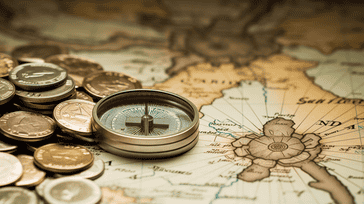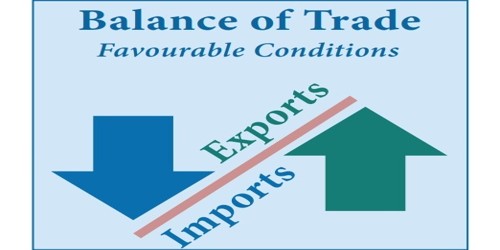
Personal finance is an essential aspect of everyone's life, encompassing all our financial decisions and activities. Managing personal finances can seem daunting, but with the right strategies in place, it can be a relatively easy task. One of the most crucial steps in personal finance is building an emergency fund.
An emergency fund is a safety net that provides financial security during unexpected situations, such as job loss, medical emergencies, or natural disasters. Without an emergency fund, you may have to rely on credit cards or loans, which can lead to debt and financial hardships.
While building an emergency fund may seem like a daunting task, it's an essential step in securing your financial future. In this article, we will explore the importance of personal finance, financial planning, budgeting, saving, investing, debt management, credit scores, taxes, and insurance. We will also highlight the significance of an emergency fund as a safety net in personal finance.
Key Takeaways
- Personal finance encompasses all financial activities and decisions in our lives.
- An emergency fund is crucial for financial security during unexpected situations.
- Building an emergency fund requires financial planning, budgeting, and saving.
- Managing debt, maintaining a good credit score, tax planning, and insurance are crucial aspects of personal finance.
- Building an emergency fund is a vital safety net in achieving financial security.
Understanding Personal Finance and Financial Planning
Personal finance is the management of your money, including budgeting, saving, investing, debt management, taxes, and insurance. It is crucial for achieving financial security and building wealth.
Financial planning is the process of setting financial goals, creating a plan to achieve them, and regularly assessing and adjusting your plan as necessary. It is an essential aspect of personal finance, as it helps you to make informed decisions about how to manage your money effectively.
Why is Personal Finance Important?
Personal finance is essential for many reasons. It allows you to:
- Save for emergencies and unexpected events
- Plan for major expenses such as a home or education
- Build wealth and achieve financial freedom
- Retire comfortably and securely
The Role of Financial Planning
Financial planning plays a critical role in managing your personal finances effectively. It can help you:
- Set and achieve financial goals
- Create a budget that aligns with your goals and helps you manage your money more effectively
- Identify areas where you can reduce expenses and save more money
- Determine how much you need to save for retirement and how to invest those savings
Getting Started with Financial Planning
Getting started with financial planning can be daunting, but it doesn't have to be. Here are some steps to help you get started:
- Evaluate your current financial situation: Take a look at your income, expenses, assets, and debts. This will help you to establish a starting point for your financial plan.
- Set financial goals: Identify your short-term and long-term financial goals. This will help you to create a plan that aligns with your priorities.
- Create a budget: Develop a budget that includes all of your income and expenses. This will help you to track your spending and identify areas where you can cut back.
- Establish an emergency fund: Set aside money in an emergency fund to cover unexpected expenses.
- Start investing: Consider investing your savings in stocks, bonds, and mutual funds to help grow your wealth over time.
By taking these steps, you can create a solid financial plan that will help you achieve your goals, manage your money more effectively, and build long-term wealth.
Budgeting: The Foundation of Personal Finance

When it comes to personal finance, budgeting is the cornerstone for building financial stability. Developing a budget allows you to track your income and expenses, ensuring that you are not overspending and that you have enough funds to cover your essential needs.
Creating a budget requires tracking all of your income and expenses. This means accounting for all of your bills, including rent/mortgage payments, utilities, insurance, transportation, and food costs. Additionally, you need to factor in any other expenses, such as gym memberships, entertainment, and other non-essential purchases.
Tracking Income and Expenses
One effective way to track your income and expenses is by using a spreadsheet program like Microsoft Excel or Google Sheets. Alternatively, there are many budgeting apps available for free that can help you track your expenses on the go.
When recording your expenses, be sure to categorize them, so you can see how much you are spending in different areas. This will help you identify areas where you can cut back and save more money.
Sticking to Your Budget
Once you have created your budget, it is essential to stick to it. This means avoiding impulse purchases and only spending money on what you have budgeted for.
One of the most effective ways to stick to your budget is by setting financial goals. By having a target to work towards, you are more likely to stay motivated and avoid overspending.
The Benefits of Budgeting
Budgeting is an essential tool for personal finance, providing a foundation for financial stability and growth. By tracking your expenses, you can identify areas where you can save money and use those savings to build an emergency fund or invest in your future.
Moreover, budgeting helps to develop good financial habits, such as saving and avoiding debt. As a result, budgeting can help you achieve your financial goals and build long-term financial security.
The Power of Saving: Growing Your Financial Safety Net
Building an emergency fund is crucial for financial security. Savings play a vital role in creating this safety net. Saving money allows you to have a cushion of funds that can help you meet unexpected expenses and weather any financial crisis.
To begin building your emergency fund, it's important to assess your expenses and determine how much you need to save. Experts recommend having at least three to six months of living expenses saved up in an emergency fund.
| Benefits of Saving |
|---|
| Financial Security: Savings provide a buffer against unexpected expenses and financial emergencies. |
| Goal Achievement: Saving money helps you reach your financial goals, such as a down payment on a house or a dream vacation. |
| Reduced Stress: With money saved in the bank, you can feel more confident and less stressed about facing unexpected expenses. |
Once you have determined how much you need to save, it's time to start the savings journey. One of the best ways to save is to create a budget that takes into account your expenses and income. Budgeting can help you identify areas where you can cut back on expenses and allocate those funds towards your emergency fund.
Another way to save is to automate the process. By setting up an automatic transfer from your checking account to your savings account each month, you can ensure that you are consistently contributing to your emergency fund without having to think about it.
It's also important to keep your emergency fund separate from your other savings or checking accounts. This helps prevent you from dipping into the fund unnecessarily and ensures that it is readily available when needed.
In summary, savings play a vital role in building an emergency fund as a safety net in personal finance. By assessing your expenses, determining how much you need to save, and creating a budget, you can begin to grow your financial safety net and protect yourself from unexpected financial crisis.
Investing for the Future: Maximizing Your Wealth

Investing money is a crucial aspect of personal finance and retirement planning. While saving can help you build an emergency fund, investing your money can help you grow your wealth. By investing, you can take advantage of compound interest and achieve long-term financial goals.
The Benefits of Investments in Personal Finance
Investing your money wisely can provide numerous benefits, including:
- Maximizing returns: Investments can offer higher returns compared to traditional savings accounts.
- Diversifying your portfolio: By investing in different asset classes, you can spread risk and protect your financial future.
- Beating inflation: Investing can keep the value of your money growing at a rate that keeps up with or exceeds inflation.
- Retirement planning: Investing can help build a nest egg for retirement and secure your financial future.
Types of Investments
Investments come in many forms, including:
| Asset Class | Description |
|---|---|
| Stocks | Ownership in a company, offering the potential for capital appreciation and dividends. |
| Bonds | Debt securities issued by corporations or governments, offering a fixed income stream. |
| Mutual Funds | A professionally managed portfolio of stocks, bonds, and other assets, providing diversification. |
| Exchange-Traded Funds (ETFs) | Similar to mutual funds but traded on an exchange like a stock, providing flexibility and liquidity. |
| Real Estate | Investing in property or real estate investment trusts (REITs), offering potential rental income and capital appreciation. |
| Commodities | Investing in physical goods such as gold, oil or agricultural products, offering diversification from traditional stocks and bonds. |
When choosing investments, it's important to consider your risk tolerance, investment goals, and investment horizon. A financial advisor can help you create a personalized investment strategy based on your individual needs.
Investing in the stock market carries risks. It’s important to note that investing in individual stocks involves a higher level of risk compared to investing in mutual funds or ETFs.
Start Investing Today
Whether you're just starting or looking to grow your investment portfolio, there are many options available in personal finance. By investing wisely, you can maximize your wealth and secure your financial future, particularly in the context of retirement planning.
"The stock market is filled with individuals who know the price of everything, but the value of nothing." - Phillip Fisher
Managing Debt: Navigating the Road to Financial Freedom
Managing debt is an essential aspect of personal finance. Debt is not a bad thing, but it can be disastrous if not managed effectively. Debt management involves taking control of your finances, paying off your debts, and creating a plan to stay debt-free. Here are some tips for effective debt management:
- Create a Budget: A budget is a crucial tool that helps you manage your expenses and control your debt. Start by listing your income and expenses and identifying areas where you can cut back.
- Pay More Than the Minimum: Paying more than the minimum payment on your debts can help reduce your overall debt and save you money on interest payments.
- Consider Debt Consolidation: Debt consolidation involves combining multiple debts into a single loan with a lower interest rate. This can help simplify your payments and reduce the amount of interest you pay.
- Communicate with Creditors: If you are struggling with debt, communicate with your creditors to discuss your options. They may be willing to offer a payment plan or reduced interest rate.
"Debt is not a bad thing, but it can be disastrous if not managed effectively."
Overall, effective debt management is crucial for financial freedom. By creating a budget, paying more than the minimum, considering debt consolidation, and communicating with creditors, you can take control of your finances and work towards a debt-free future.
The Importance of Building a Strong Credit Score

Your credit score is an essential aspect of your personal finances. It is a numerical representation of your creditworthiness and tells lenders, creditors, and other financial institutions how reliable you are when it comes to borrowing and repaying money.
Having a good credit score is crucial in today's world, as it affects your ability to get approved for loans, credit cards, and even rental applications. A higher score can lead to better interest rates, lower fees, and more favorable terms, saving you money in the long run.
To maintain a strong credit score, consider following these tips:
- Pay your bills on time, every time. Late payments can have a negative impact on your credit score, so make sure to pay your bills on or before the due date.
- Keep your credit utilization low. Your credit utilization is the amount of credit you use compared to the amount you have available. Try to keep it below 30% to maintain a good score.
- Don't open too many new credit accounts at once. This can be seen as a red flag to creditors and might lower your score.
- Check your credit report regularly for errors. Mistakes can happen, and they can negatively impact your score. Make sure to dispute any errors you find.
Building a strong credit score takes time and effort, but it's worth the investment. It can help you achieve your financial goals and provide peace of mind knowing that you have a solid financial foundation.
Navigating Taxes: Maximizing Returns and Minimizing Burdens
One of the most significant expenses that individuals have to contend with is taxes. Failure to manage taxes properly can lead to various financial challenges and ultimately jeopardize your financial goals. In this section, we will explore the importance of tax planning in personal finance and how it can help you optimize your finances while minimizing the burden of taxes.
Understanding Tax Planning
Tax planning involves analyzing and understanding the tax implications of your financial decisions and taking steps to minimize the amount of tax you owe. Effective tax planning is critical to the success of any financial plan because taxes can significantly impact your net worth. By minimizing your tax liability, you can free up more resources to save, invest, or achieve other financial goals.
Maximizing Your Tax Return
One of the essential components of effective tax planning is maximizing your tax return. By doing so, you can increase the amount of money you receive from the government after filing your income tax return. There are various ways to maximize your tax return, including taking advantage of tax deductions, credits, and other tax-advantaged accounts.
| Type of Tax Benefit | Description |
|---|---|
| Tax Deductions | A tax deduction is an expense that can be subtracted from your taxable income. Examples include charitable donations and certain business expenses. |
| Tax Credits | A tax credit is a dollar-for-dollar reduction of the amount of tax you owe. Examples include the child tax credit or the earned income tax credit. |
| Tax-Advantaged Accounts | These accounts offer tax benefits that can help you maximize your tax return. Examples include individual retirement accounts (IRAs) and 401(k) plans. |
Minimizing Your Tax Burden
Another critical component of effective tax planning is minimizing your tax burden. By doing so, you can reduce the amount of tax you owe, freeing up more resources to meet your financial obligations and achieve your financial goals. There are various ways to minimize your tax burden, including deferring income, taking advantage of tax deductions, and investing in tax-advantaged accounts.
The Importance of Professional Advice
While there are various ways to navigate taxes in personal finance, tax laws can be complex and constantly changing. As such, seeking professional advice can be essential to make informed financial decisions and avoid tax-related pitfalls. A qualified tax professional can help you identify tax-saving opportunities, ensure compliance with tax laws, and provide guidance on tax planning strategies that align with your financial goals and objectives.
Conclusion
Navigating taxes is a critical component of personal finance. Effective tax planning can help you optimize your finances while minimizing the burden of taxes. By maximizing your tax return, minimizing your tax burden, and seeking professional advice, you can navigate taxes successfully and achieve your financial goals.
Protecting Your Finances: The Role of Insurance
Insurance is an essential component of personal finance. It provides financial protection against uncertainties, such as accidents, sickness, natural disasters, and loss of property, among others. Having the right insurance coverage can give you peace of mind, safeguard your assets, and mitigate financial risks.
There are several types of insurance policies available, including health insurance, life insurance, auto insurance, home insurance, and disability insurance. Choosing the right insurance policy depends on your specific needs and circumstances.
Health Insurance
Health insurance covers medical expenses and provides financial protection against unexpected health issues. It can help you pay for doctor visits, hospital stays, and prescription drugs. Most employers offer health insurance, but you can also purchase individual policies through the Affordable Care Act (ACA) marketplace or private insurance companies.
Life Insurance
Life insurance provides financial support to your beneficiaries (usually family members) in case of your death. It can help cover funeral expenses, outstanding debts, and lost income. There are two types of life insurance policies: term life insurance and whole life insurance. Term life insurance is less expensive and provides coverage for a specific period, while whole life insurance offers lifetime coverage and builds cash value over time.
Auto Insurance
Auto insurance covers damages and injuries caused by a car accident. It can help pay for repairs or replacement of your vehicle and medical bills for injuries sustained in the accident. Auto insurance is mandatory in most states, and the coverage requirements vary by state.
Home Insurance
Home insurance protects your home and personal property against damages and theft. It can help cover the cost of repairs or replacement of your home and belongings. Home insurance also provides liability coverage in case someone is injured on your property. If you have a mortgage, your lender may require you to have a home insurance policy.
Disability Insurance
Disability insurance provides income replacement if you become disabled and can no longer work. It can help pay for your living expenses, medical bills, and other financial obligations. Disability insurance policies can be short-term or long-term, and the coverage and benefits depend on the policy.
Having insurance is an essential part of personal finance, as it provides a safety net against unforeseen circumstances. Make sure to evaluate your insurance needs regularly and choose the right policies to protect your finances and assets.
Conclusion
To sum it up, taking control of your personal finance is the key to achieving financial security. Building an emergency fund is a crucial component of your financial plan. It provides a safety net during unforeseen circumstances such as medical emergencies, job loss, or unexpected expenses.
By understanding the basics of personal finance, creating and sticking to a budget, saving money, investing wisely, managing debt, maintaining a good credit score, optimizing your taxes, and having appropriate insurance coverage, you can safeguard your finances and achieve long-term financial success.
Start Today!
Remember, it is never too late to start taking control of your finances and building your emergency fund. Start by taking small steps towards your financial goals.
Cut out unnecessary expenses, increase your savings rate, and seek professional guidance whenever required. With the right mindset and the appropriate financial strategies, you can achieve financial security and live a stress-free life.
Invest in your financial future by building an emergency fund today.
FAQ
What is personal finance?
Personal finance refers to the management of an individual's money, including budgeting, saving, investing, and planning for the future.
Why is having an emergency fund important?
An emergency fund provides a financial safety net during unexpected events or crises. It helps cover expenses, such as medical bills or job loss, without relying on credit or accumulating debt.
What is financial planning?
Financial planning involves setting financial goals, creating a roadmap to achieve them, and implementing strategies to manage your money effectively. It considers factors such as budgeting, investing, and retirement planning.
How does budgeting impact personal finance?
Budgeting is the foundation of personal finance. It helps track income and expenses, prioritize spending, and ensure financial goals are met. It enables individuals to make informed decisions about their money.
Why is saving money important?
Saving money allows individuals to build financial security and prepare for future expenses or emergencies. It also provides opportunities for investments, retirement planning, and achieving long-term financial goals.
What role does investing play in personal finance?
Investing allows individuals to grow their wealth over time. It involves putting money into assets such as stocks, bonds, or real estate with the intention of generating returns and securing financial stability, especially for retirement.
How can I effectively manage my debt?
Debt management involves strategies to responsibly handle and repay debts. This includes creating a repayment plan, negotiating with creditors, and exploring debt consolidation or refinancing options.
Why is maintaining a good credit score important?
A good credit score is crucial for accessing favorable loan terms, lower interest rates, and better financial opportunities. It demonstrates creditworthiness and responsible financial behavior.
How can I optimize my taxes and minimize burdens?
Tax planning involves understanding tax laws, deductions, and credits to minimize tax liabilities. Effective tax planning can help individuals maximize returns, reduce tax burdens, and optimize their overall financial situation.
Why is insurance important in personal finance?
Insurance protects individuals from financial risks and unexpected expenses. It provides coverage for various areas such as health, property, life, and disability, ensuring financial security and peace of mind.








